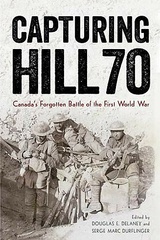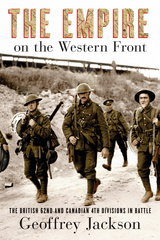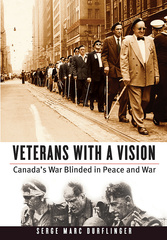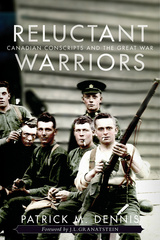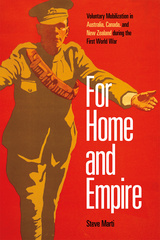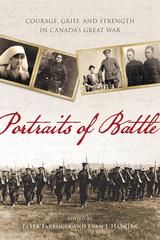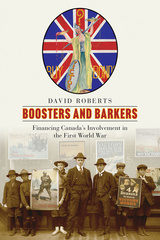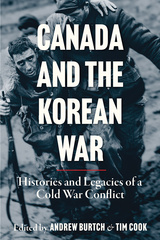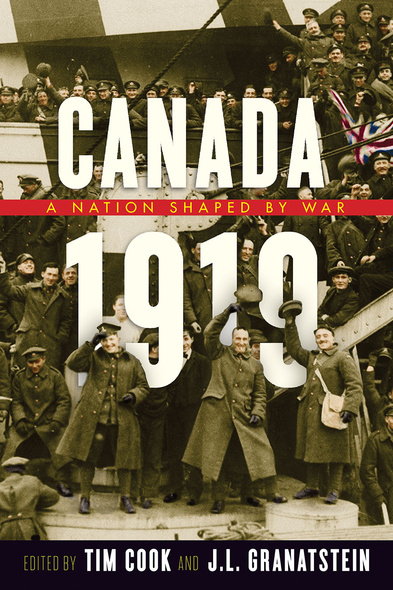
With compelling insight, Canada 1919 examines the year following the Great War – a war that was, for Canada, completely unexpected in its magnitude. In the midst of relief that the killing had ended, economic and political tensions were fraught as the survivors attempted to right the country and chart a path into the future.
The Canadian Corps had played a significant role in the war and were hailed as the “shock troops” of the British empire. They came home full of both sorrow and pride in their accomplishments, wondering what they would do and how they would fit in with their families. The military stumbled through a massive demobilization. The government struggled to hang on to power. Labour seethed, and the threat of Bolshevism emerged. At the same time there were positive changes, and a new Canadian nationalism was forged.
This book offers a fresh perspective on the concerns of the time: the treatment of veterans, including nurses and Indigenous soldiers; the place of children; the influenza pandemic; the rising farm lobby; the role of labour; Canada’s international standing; and commemoration of the fallen. Canada 1919 exposes the ways in which war shaped Canada – and the ways it did not.
While the extraordinarily high calibre of scholarship in this collection makes it indispensable reading for military historians and Canadian historians both in Canada and abroad, general readers will also find it compelling.
This work is fantastic, and the breadth of topics covered truly gives the reader a rich flavor of the issues facing not just Canada, but global democracies at the end of the First World War.
All the articles are short and highly readable and provide multiple notes for further research that will prove useful to beginning researchers.
Altogether, this is a fascinating collection of papers and recommended reading for anyone interested in the history of Canada’s role in the Great War.
Cook and Granatstein’s volume offers a rich selection of interpretations from scholars of the World War I period…
This collection of essays by established historians and emerging scholars, based on a 2019 conference at the Canadian War Museum, provides a richly detailed, if not quite comprehensive, portrait of Canada on the precipice of modernity.
I recommend this edited collection to anyone who wants to understand the immediate and long-lasting legacies—both positive and negative—of the First World War on Canada.
Canada 1919 is highly recommended to all those interested in the history of early twentieth-century Canada, World War I, and the medical and social history of the period.
A new world began in 1919. As great empires crumbled and traditions did not hold, Canadians saw their country in new and different ways. Canada 1919 possesses an exceptionally wide vision, one that reveals how a tumultuous year dramatically changed how Canadians came to think differently about their politics, art, women, the war, and what Canada could be.
Canada 1919 illuminates the space between war and peace and reminds us of just how satisfying a deep dive into a single year can be. Meticulously researched and provocatively argued, this book interweaves layers of generals, soldiers, and politicians, with examinations of orphans, flu sufferers, workers, strikers, and more. The result is a rich new examination of the moment one world ended and another began.
Brilliant and Engaging! New and established scholars explore the lives of Canadians following the Great War with new questions, new approaches, and new insights. Cook and Granatstein demonstrate vividly why this country’s military past is so important to understanding contemporary Canada.
Tim Cook and Jack Granatstein are legends in the field, and this collection only solidifies their reputations. Canada 1919 brings together one of the most impressive collections of minds I have seen in a single volume to explain how the Canadian experience of war was much, much more than Vimy Ridge.
A rich, timely, and varied reflection on the legacy of the Great War.
Tim Cook is the First World War historian at the Canadian War Museum, a Member of the Order of Canada, and a Fellow of the Royal Society of Canada. His eleven books include prize-winning studies of the Great War and the Second World War and an analysis of the memory of the 1917 victory at Vimy Ridge. J.L. Granatstein is Distinguished Research Professor of History Emeritus at York University, and a former director and CEO of the Canadian War Museum. He has served on various government commissions, and his many publications include prize-winning studies of Canadian wartime politics, diplomacy, and the nation’s military history. He is an Officer of the Order of Canada, a Fellow of the Royal Society of Canada, and has seven honorary degrees.
Contributors: Kristine Alexander, David Jay Bercuson, Kandace Bogaert, Alan Bowker, Laura Brandon, Douglas E. Delaney, Serge Marc Durflinger, Norman Hillmer, Mark Osborne Humphries, Jeff Keshen, Brian R. MacDowall, Mélanie Morin-Pelletier, Dean F. Oliver, Lyndsay Rosenthal, Roger Sarty, William Stewart, Jonathan F. Vance
Introduction / Tim Cook and J.L. Granatstein
1 The Long 1919: Hope, Fear, and Normalcy / Alan Bowker
2 Coming Home: How the Soldiers of Canada and Newfoundland Came Back / Dean F. Oliver
3 “Playing With Fire”: Canadian Repatriation and the Riots of 1919 / William F. Stewart
4 New Battlegrounds: Treating VD in Belgium and Germany, 1918-19 / Lyndsay Rosenthal
5 “L’honneur de notre race”: The 22nd Battalion Returns to Quebec City, 1919 / Serge Marc Durflinger
6 Demobilization and Colonialism: Indigenous Homecomings in 1919 / Brian R. MacDowall
7 Victory at a Cost: General Currie’s Contested Legacy / Tim Cook
8 Dealing with the Wounded: The Evolution of Care on the Home Front to 1919 / Kandace Bogaert
9 In Death’s Shadow: The 1918-19 Influenza Pandemic and War in Canada / Mark Osborne Humphries
10 The Winnipeg General Strike of 1919: The Role of the Veterans / David Jay Bercuson
11 The Group of Seven and the First World War: The Burlington House Exhibition / Laura Brandon
12 Domestic Demobilization: Letters from the Children’s Page / Kristine Alexander
13 “At Peace with the Germans, but at War with the Germs:” Canadian Nurse Veterans after the First World War / Mélanie Morin-Pelletier
14 A Timid Transformation: The First World War’s Legacy on Canada’s Federal Government / Jeff Keshen
15 Politics Undone: The End of the Two Party System / J.L. Granatstein
16 Growing Up Autonomous: Canada and Britain through the First World War and into the Peace / Norman Hillmer
17 Past Futures: Military Plans of the Canadian and Other Dominion Armies in 1919 / Douglas E. Delaney
18 The Navy Reborn, an Air Force Created? The Making of Canadian Defence Policy, 1919 / Roger Sarty
19 “Our Gallant Employees”: Corporate Commemoration in Postwar Canada / Jonathan F. Vance
Conclusion / Tim Cook and J.L. Granatstein
Selected Bibliography; Index





